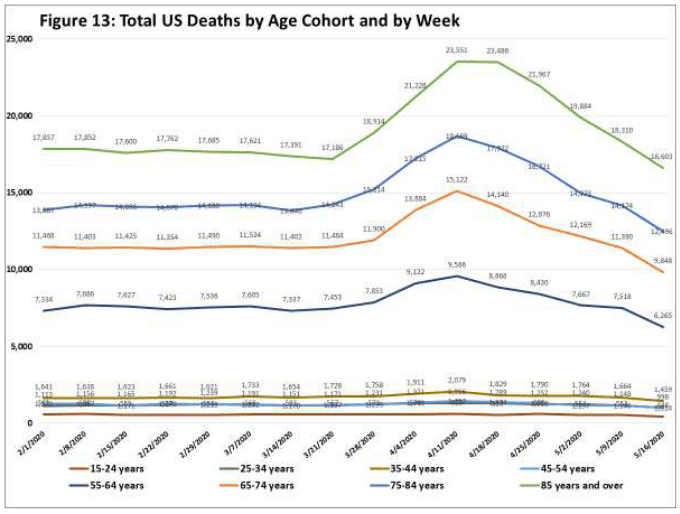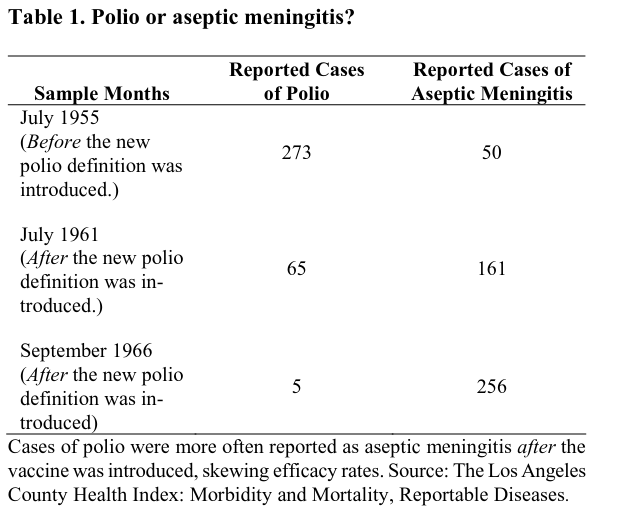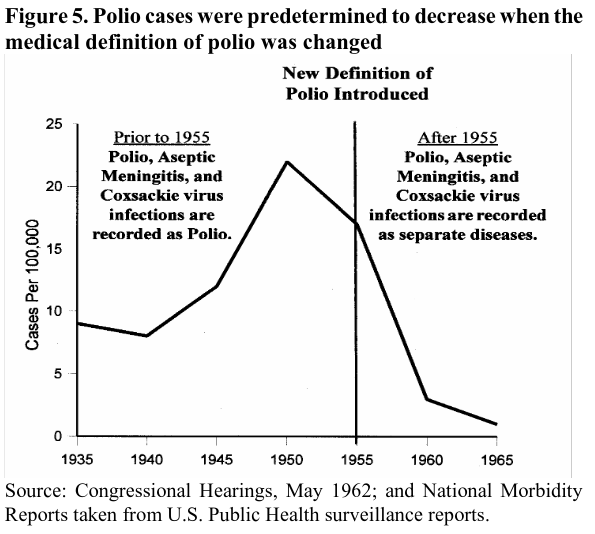Why you need to stop saying “I’m not an antivaxxer, but…”
The word "antivaxxer" is a thought-stopper used only by the brain-dead, to shut down debate. Stop playing their game.
If I only had a dollar for every time I’ve heard someone say “I’m not an antivaxxer, but…” in the last two years of the manufactured COVID crisis, I’d be enjoying a holiday in one of the 73 countries that currently welcome travellers who haven’t had an experimental COVID-19 injection.
Wait, scratch that, since I am not permitted to leave my own country because, according to Chief Medical Officer, Professor Paul Kelly, the International Health Regulations (IHR) that Australia signed onto as a member of the World Health Organisation (WHO) oblige nations to restrict outbound travel during pandemics.
Oddly enough though, out of the other 195 countries who are legally bound by the IHR, only two still have outbound travel restrictions in place: Canada – a police state which jails its citizens, seizes their assets and freezes their bank accounts for participating in or supporting a peaceful and lawful protest – and the United Arab Emirates – which conducts public floggings and jails women who report that they’ve been raped. Well, at least Paul Kelly is in good company.
Anyway, back to my point. Most doctors, scientists and even members of the general public who wish to express their concerns about the safety and efficacy of the inadequately-tested, rushed-to-market, liability-free experimental COVID-19 injections without being instantly dismissed as tinfoil hat wearing nutters/baby killers/granny murderers/conspiracy theorists/insert moronic thought-stopper of choice, fall over themselves to lay out their credentials as true believers of the central dogma of the Church of Modern Medicine: that vaccines are the best thing since sliced bread – just not these vaccines:
“I’m not an antivaxxer – I’ve had every other vaccine, including my yearly flu shot.”
“I’m not an antivaxxer – I’ve even had extra ones, for travel.”
“I’m not an antivaxxer – all my kids are up-to-date with their vaccines.”
“I’m not an antivaxxer – I develop vaccines for a living.”
It’s like a scientistic version of Tourette’s. They feel compelled to preface every critical utterance about COVID injections with their tremulous protestation of faith in The Vaccine Science™: “I’m not an antivaxxer!!!”
As I wrote back in 2017, in my article Vaccines: Science, Undone Science and Anti-Science, the use of the term “antivaxxer” to shut down any and all discussion of vaccination is intellectually lazy and fundamentally anti-science.
In that article, I quoted at length from an editorial in The BMJ by the associate editor of that venerable journal, Peter Doshi, who has been relentless in his pursuit of the truth about COVID-19 injections (see my previous articles WHO’s plan to vaccinate the world, COVID-19 vaccines: Magic bullets or mirages? and If the COVID-19 injections work, why are more people dying? Part 2 for summaries of his fine work).
Doshi’s critique of the weaponisation of the term “antivaxxer” is so lucid and penetrating that I’m going to quote it at length once again:
“Good journalism on this topic will require abandoning current practices of avoiding interviewing, understanding, and presenting critical voices out of fear that expressing any criticism amounts to presenting a ‘false balance’ that will result in health scares.
It does matter if the vast majority of doctors or scientists agree on something. But medical journalists should be among the first to realize that while evidence matters, so too do the legitimate concerns of patients. And if patients have concerns, doubts, or suspicions—for example, about the safety of vaccines, this does not mean they are “anti-vaccine.” Anti-vaccine positions certainly exist in the world, but approaches that label anybody and everybody who raises questions about the right headedness of current vaccine policies—myself included (9)—as “anti-vaccine” fail on several accounts.
Firstly, they fail to accurately characterize the nature of the concern. Many parents of children with developmental disorders who question the role of vaccines had their children vaccinated. Anti-vaccination is an ideology, and people who have their children vaccinated seem unlikely candidates for the title.
Secondly, they lump all vaccines together as if the decision about risks and benefits is the same irrespective of disease—polio, pertussis, smallpox, mumps, diphtheria, hepatitis B, influenza, varicella, HPV, Japanese encephalitis—or vaccine type—live attenuated, inactivated whole cell, split virus, high dose, low dose, adjuvanted, monovalent, polyvalent, etc. This seems about as intelligent as categorizing people into “pro-drug” and “anti-drug” camps depending on whether they have ever voiced concern over the potential side effects of any drug.
Thirdly, labeling people concerned about the safety of vaccines as “anti-vaccine” risks entrenching positions. The label (or its derogatory derivative “anti-vaxxer”) is a form of attack. It stigmatizes the mere act of even asking an open question about what is known and unknown about the safety of vaccines.
Fourthly, the label too quickly assumes that there are “two sides” to every question, and that the “two sides” are polar opposites. This ‘you’re either with us or against us’ thinking is unfit for medicine. Many parents who deliberate on decisions regarding their children’s health ultimately make decisions—such as to vaccinate or not vaccinate—with lingering uncertainty about whether they were right. When given a choice, some say yes to some vaccines and no to others. These parents are not zealots, they are decision makers navigating the gray, acting under conditions of uncertainty in perpetual flux.
And among those uncertainties are the known and unknown side effects that each vaccine carries. Contrary to the suggestion—generally implicit—that vaccines are risk free (and therefore why would anyone ever resist official recommendations), the reality is that officially sanctioned written medical information on vaccines is—just like drugs—filled with information about common, uncommon, and unconfirmed but possible harms.(10) (11)
Although MMR and autism have dominated journalistic coverage of this issue, and journalists have correctly characterized the scientific consensus that rejects any such link1, most journalists have insufficiently acknowledged the fact that bodies such as the Institute of Medicine have “found convincing evidence of 14 health outcomes—including seizures, inflammation of the brain, and fainting—that can be caused by certain vaccines, although these outcomes occur rarely.”(12)
And for 135 other adverse events investigated, the committee concluded “the evidence was inadequate to accept or reject a causal relationship” with vaccines.
Medical journalists have an obligation to the truth. But journalists must also ensure that patients come first, which means a fresh approach to covering vaccines. It’s time to listen—seriously and respectfully—to patients’ concerns, not demonize them.”
Medical response to Trump requires truth seeking and respect for patients
Did those medical journalists listen to Doshi and mend their ways? Hell, no. They doubled down. And the power-mad politicians piled on too, with Michael ‘Mad Dog’ Gunner, the palpably deranged Chief Minister of the Northern Territory, snatching the ‘Everyone I Don’t Like is Hitler’ ball and putting it on play on an entirely new field of his own devising:
According to the spittle-spraying Mr Gunner,
“If you are anti-mandate, you are absolutely anti-vax. I don’t care what your personal vaccination status is.”
First they came for the Communists…
From early on in the manufactured COVID crisis, a chorus of voices raised concerns about the interruptions to “well child” visits and other medical encounters aimed at delivering the childhood vaccine schedule, caused by the imposition of the suite of non-evidence-based control measures collectively titled “lockdown” on populations throughout the world.
The WHO wrung its hands over the impact of lockdowns, noting that “23 million children missed out on basic vaccines through routine immunization services in 2020”. WHO Director-General (and alleged war criminal) Tedros Adhanom Ghebreyesus augured that “multiple disease outbreaks would be catastrophic for communities and health systems already battling COVID-19, making it more urgent than ever to invest in childhood vaccination and ensure every child is reached.”
The US Centers for Disease Control and Prevention (CDC) wailed at the sharp decrease in doses of vaccines ordered by health care providers in the first quarter of 2020, and gnashed its teeth at the decline in the share of five-month-old Michigan babies who were “up-to-date” on vaccines from an average of roughly two-thirds to less than half, during the three months in which stay-at-home orders were in place.
And researchers tore their beards over the skipping of childhood vaccination appointments by 34% of Italian parents, the 36% decline in routine childhood vaccination in Pakistan, the 37% prevalence of intentional vaccination delay in Saudi parents, and the 14.4% decline in vaccination coverage in Colombia.
So, what catastrophic consequences ensued from this decline in childhood vaccination? Plague, pestilence, and great slimy monsters crawling from the deep?
Well, not exactly. In the US, child deaths declined at precisely the same time-point that older age-groups suffered a sharp mortality spike. Here are the total US deaths broken down by age cohort and week, from February to May 2020:
And here are the child deaths, compared to previous years; note the striking decline in under 18 deaths commencing in week 9 (late February):
When broken down further by age cohort, it’s clear that the mortality decline was concentrated in infants under one year of age:
So, at a time when public health experts were warning that skipped childhood vaccination appointments would lead to devastating consequences, roughly 200 fewer infants were dying each week in the US.
Correlation is not causation, of course, and back in June 2020 when these intriguing data trends were first brought to public attention, any connection between fewer childhood vaccinations and reduced infant mortality was purely speculative.
However, scientific discovery proceeds through making observations, and some of the most fruitful observations in terms of sheer potential for hypothesis generation are natural experiments - changes in environmental exposures that allow before-and-after comparisons of outcomes in the same population.
It turns out that the entire US state of Florida took part in a natural experiment on childhood vaccination, apparently as a direct result of the sharp drop in confidence in public health advice that ensued from Florida’s divergence from officially sanctioned (yet unprecedented and non-science-based) COVID containment policies.
When Florida’s governor, Ron DeSantis, broke with CDC guidance and began lifting COVID-19 restrictions in September 2020, the mainstream media’s collective brain exploded in incandescent rage, spewing predictions of biblical-scale carnage that are depicted in this political advertisement framing DeSantis’ policies as the real-life sequel to The Purge franchise (read the YouTube comments; they’re well worth the price of admission):
(Just for the record, my favourite YouTube comment on this was "Does DeSantis have to declare the cost of this ad as a campaign contribution?")
However, disappointingly for the rabid #DeathSantis hashtaggers, the retirement capital of the US ranks 31st out of 51 (50 states plus the District of Columbia) on the all-important metric of age-adjusted COVID deaths, outperforming lockdown meccas (and mainstream media paragons of exemplary COVID response) New Jersey (#14), New York (#16), District of Columbia (#21) and Michigan (#24).
The gap between the apocalyptic predictions of Chief COVID Seer, Anthony Fauci and readily observable reality seems to have prompted some healthy scepticism in Floridians toward public health nostrums. And it didn’t stop with COVID.
As documented by Igor Chudov on his Substack, according to Florida Health, the percentage of children aged 24 to 35 months in the state who were fully compliant with the CDC-recommended childhood vaccination schedule plummeted 14.1 percentage points, from 93.4% in 2020 to 79.3% in 2021. Meanwhile, the percentage of children aged 12 months to 23 months who were fully compliant dropped from 73 per cent in 2020 to 67.2 per cent in 2021.
And what happened to Florida’s infant mortality rate? It dropped by 8.93%. Huh. So no plagues of boils, hail, locusts, darkness and the killing of firstborn children ensued when parents skipped their kids’ jabs? No, just fewer babies dying in their first year of life.
While Igor “I’m not an antivaxxer, but…” Chudov expressed shock and disbelief at his own findings, and practically begged his readers to disprove him, they instead peppered him with links to further research indicating a correlation between increased intensity of childhood vaccination and higher infant mortality rates. If this is your first foray into questioning the value of childhood vaccines, buckle up – you’re in for a wild ride.
So wild that even the most heroic critics of damaging COVID containment policies, such as Drs Jay Bhattacharya and Martin Kulldorff, don’t dare to go there, as my Twitter exchange with them demonstrates:
Still no response from either of these admirable doctors, who remain firmly planted in the “I’m not an antivaxxer, but…” camp. I guess even the most courageous people still have cognitive maps marked with the medical equivalent of “here be dragons”. But I live in hope.
And if you’re interested in that seminal paper I referred to, ‘The questionable contribution of medical measures to the decline of mortality in the 20th century’, you’ll find it here.
You really should read the whole paper, but here’s the money quote:
“With reference to those five conditions (influenza, pneumonia, diphtheria, whooping cough, and poliomyelitis) for which the decline in mortality appears substantial after the point of intervention—and on the unlikely assumption that all of this decline is attributable to the intervention—it is estimated that at most 3.5 percent of the total decline in mortality since 1900 could be ascribed to medical measures introduced for the diseases considered here.”
The questionable contribution of medical measures to the decline of mortality in the 20th century
Note that the “interventions” referred to in the above quote include not just vaccines but antibiotics and diphtheria toxoid; that piddling 3.5% of the reduction in total mortality is shared between an antibiotic, three vaccines and a toxoid.
Far from being “one of the greatest success stories in public health” and “one of the greatest medical achievements of modern civilization“, the McKinlays’ careful analysis suggests that vaccines made little to no discernible contribution to the decline in deaths from measles, influenza, whooping cough and smallpox in the twentieth century, while the impact on poliomyelitis deaths was small.
And while the McKinlays do not mention this, the case definition of poliomyelitis was changed after the polio vaccine was introduced, leading to an artefactual drop in reported cases and deaths which made the vaccine appear more effective than it actually was:
“Prior to the introduction of the vaccine the patient only had to exhibit paralytic symptoms for 24 hours. Laboratory confirmation and tests to determine residual paralysis were not required. The new definition required the patient to exhibit paralytic symptoms for at least 60 days, and residual paralysis had to be confirmed twice during the course of the disease. Also, after the vaccine was introduced cases of aseptic meningitis (an infectious disease often difficult to distinguish from polio) and coxsackievirus infections were more often reported as separate diseases from polio. But such cases were counted as polio before the vaccine was introduced. The vaccine’s reported effectiveness was therefore skewed (Table 1 and Figure 5).”
So, do us all a favour, and quit using “I’m not an antivaxxer, but…” to preface your critical comments or questions about the efficacy and safety of COVID-19 “vaccines”. They’re not an exceptional case; the entire field of vaccinology is littered with undone science, and it’s high time that indisputable fact was acknowledged, and a serious attempt made to remedy it.
For information on my private practice, please visit Empower Total Health. I am a Certified Lifestyle Medicine Practitioner, with an ND, GDCouns, BHSc(Hons) and Fellowship of the Australasian Society of Lifestyle Medicine.
Doshi failed to acknowledge that the Cochrane review of the MMR vaccine, while concluding that the scientific evidence did not support a causal link between the vaccine and autism, expressed reservations about the trustworthiness of that evidence: "Our certainty in the evidence for autism and febrile seizures was also moderate."













I used to say "I'm not an antivaxxer but..." I now say "I used to be neutral about vaccines but after reading RFK's book The Real Anthony Fauci I'm a total antivaxxer- they're all dangerous and useless"
Canadians still can't travel on planes or trains within our own country, or anywhere else. I've met quite a few who are "escaping," moving to Mexico.